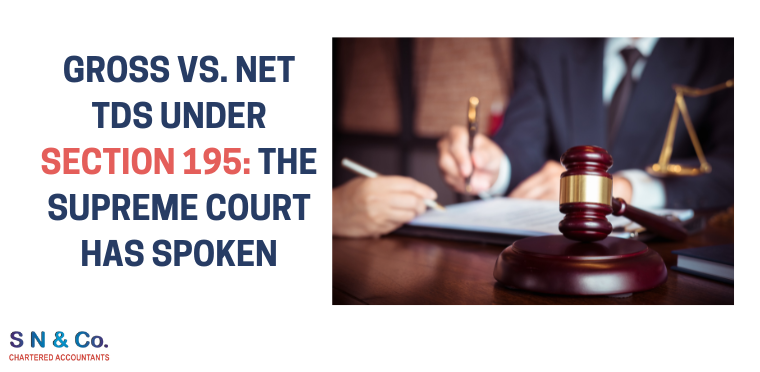Legal position of a shell company after strike-off Guest Author : Anita Baid
| 1. Introduction A company is classified as a shell company if it is a non-trading company that has been floated with the intention of financial maneuvering. There has been a rise in the number of shell companies floated across the country in recent years. The fight against black money shall be incomplete without breaking the network of shell companies. There is a lot of possibility of using the shell companies for laundering of the black money. This threat cannot be undermined. As a comprehensive step to address the issue of shell companies and their role in money laundering and circulation of unaccounted money, the Government has decided to track down the beneficial owners of suspected shell companies and take penal action against those who divert funds from companies that are struck off the records of the Registrar of Companies (RoC). The intent of the Government is to ensure that companies take their statutory obligations seriously and to deter firms from using a complex corporate structure to divert funds raised from financial institutions or to launder money. 2. Striking-off of shell companies To improve corporate governance and to check financial irregularities undergoing in these shell companies, various ROCs have recently removed the names of many companies from the register of companies exercising their powers under section 248 of the Companies Act, 2013 (‘Act’)1. Section 248 of the Act2, deals with the power of the ROC to remove the name of a company from the register of companies in certain circumstances such as failure to commence business within one year of incorporation, or for not carrying on business for two consecutive years without applying for the status of a dormant company. Presently, the companies for striking off of their names from the register of companies have been chosen on account of their failure to comply with the requirements of law, suspicious transactions, and for failure to carry out any operation within a year of incorporation or for the preceding two financial years. However, the decision to strike off the company’s name from records can be reversed if the company is able to prove that it was operational in all these years or on other representations made by such companies. The definition of an ‘inactive company’ under the Act is provided under the Explanation to section 455, which states that inactive company means a company that has not been carrying on any business or operation, or has not made any significant accounting transaction during the last two financial years, or has not filed financial statements and annual returns during the last two financial years. Section 455 pertains to obtaining of dormant status by such inactive companies on an application made to concerned ROC or on suo moto basis by such ROC upon failure of filing financial statements/annual return for two consecutive financial years. Further, the ROC is required to maintain a register of dormant companies. It is relevant to mention here that even if a company has been given the status of a dormant company in terms of the section 455, such a company requires to comply with certain requirements such as filing of returns, having minimum number of directors, etc. Recently, the ROC has also exercised its powers under sub-section (6) of section 455, by striking off the name of such dormant companies, who have failed to maintain the status as a dormant company. Previously under the erstwhile Companies Act, there was only one resort for restoration of name, i.e., application by a certain person within a period of twenty years from the date the name had been struck off. Additionally, section 252(1) of the Act also provides that the name can also be restored by way of an appeal filed by such companies against the orders of the ROC within three years from the date of the order of the ROC to the National Company Law Tribunal (NCLT). 3. Disqualification of directors Pursuant to press information 3 issued by the Ministry of Corporate Affairs (MCA) on ‘Stricter Norms for Corporate Governance: Punishment for Siphoning off Money from Bank Accounts of “Struck Off” Companies; Disqualification of Directors from Being Appointed or Reappointed in Companies‘, the directors and authorized signatories of the struck-off companies have been prohibited from accessing the bank accounts. Their bank accounts have been frozen and banks have been advised to be more diligent and scrutinize the financial transactions of companies in general meticulously in order to reaffirm that companies follow all regulatory guidelines more carefully. Further, such directors or authorised signatories of the struck-off companies will not be able to operate the bank accounts of their former companies till such entities are restored by an order of the NCLT. The MCA has also notified that apart from the action restricting the operation of bank accounts of these companies and consequential effect on the directors, all efforts are also being made to identify the actual beneficiaries and persons behind such shell companies. As provided under section 164 of the Act that deals with disqualifications for appointment of director, the sub-clause(2)(a) disqualify a person from being a director who is or has been a director of a company which: (a) has not filed financial statements or annual returns for any continuous period of three financial years. Pursuant to the provisions of this section, several ROCs have published list of such directors who are disqualified under section 164(2)(a), including active as well as struck of companies.4 This step has been taken to ensure that directors of companies that have defaulted on statutory compliances are barred from serving on the boards of other firms as well. There have been instances of shell companies having directors who are drivers, cooks, and other employees of tax evaders. However, the debarring director is a strong measure of deterrence. There is a possibility that some innocent directors who have been associated with non-compliant companies in the past may be caught on the wrong foot and their services may be denied to genuine companies. Filing annual reports on time minimizes the possibility of fraud and tax evasion. Hence, action is being taken against companies and their directors who have not complied with the provisions of the Act. The professionals, chartered accountants, company secretaries, cost accountants associated with such defaulting companies and involved in illegal activities have also been identified in certain cases. The Government is also monitoring the action being taken by the respective regulatory bodies against the aforesaid professionals who have been found to have colluded with the shell companies in committing financial irregularities. Legal position of company after striking-off 3.1 By virtue of a legal process, a company is born as a separate legal entity, so is its death process. In case of dissolution of a company pursuant to the company’s name being removed from the Register by the ROC in terms of section 248 of the Act, the corporate status of an entity ceases to subsist, its functionality stops and for all practical purposes corporate activities come to an end. 4. Liability of directors The pertinent question that arises here is whether the liability of directors and other officers of the company struck off from the records will continue and whether it could be enforced? The answer is yes. The relevant clause of section 248 of the Act governing the matter is reproduced herein below: “(7) The liability, if any, of every director, manager or another officer who was exercising any power of management, and of every member of the company dissolved under sun-section (5), shall continue and may be enforced as if the company had not been dissolved.” Accordingly, it can be drawn that notwithstanding the company’s dissolution, the liabilities of its directors and officers who exercised powers along with its members continue, remain unaltered and enforceable. Though the dissolution does not make any enhancement to the enforcement of the liabilities affecting the personal capacity of the abovementioned persons, a view can be taken that the dissolution under section 248 is not a state of complete extinction. Instead, it is a state of suspension for a period of twenty years from the date of dissolution, as upon the revival of the company, all its rights and liabilities are restituted with retrospective effect from the date of striking-off. 5. Assets of the company Another concern for a company whose name has been struck off by the ROC is that there is no successor to the company. There may be properties and rights vested in or held on trust for the company while it was functional. The fate of such assets is a question to be addressed. Section 352(2) and 352(7) of the Act deal with the unclaimed or undistributed estate of a company, but these sections become applicable where there is a liquidator involved in winding up of a company. In case a company is dissolved in pursuance of Section 248, there is no liquidator is appointed. Hence, the operative part of Section 352is not applicable in the dissolution of a company under Section 248. The Companies Act of England has a provision that states that the property of the dissolved company shall be bona vacantia. The Escheat over which no one has a claim is known as bona vacantia. The term can be expressed as ‘abandoned property too. In bona vacantia there is no owner of the property and the state merely takes possession of the property, which is an abandoned one. In India, there is no such corresponding provision in the Act. However, as per the laws in India, the property of an estate dying without leaving lawful heirs passes on to the government by escheat or as bona vacantia. Similarly, it can be inferred that the property of a dissolved company shall also be passed on to the government by escheat or as bona vacantia,including any subsisting interest of the company on the date of dissolution. Though it can be established that the doctrine of bona vacantia will be applicable for a company dissolved under section 248, yet, whether the same shall come into operation immediately or after a lapse of the prescribed time period of twenty years is a debatable matter. 6. Discharge of liability For a company whose latest available balance sheet shows that the company has no assets or has such assets as would not be sufficient to meet the cost of liquidation, steps are taken by the ROC to strike of their name off the register. Notwithstanding the dissolution of a company, the liabilities and obligations of the dissolved company must also be met. The same has also been provided under the law. The provisions of section 248(6) of the Act ensure that the assets are available for meeting the liabilities and obligations of the company. The relevant extract of the Act is provided herein below: “248 (6) The Registrar, before passing an order under sub-section (5), shall satisfy himself that sufficient provision has been made for the realization of all amount due to the company and for the payment or discharge of its liabilities and obligations by the company within a reasonable time and, if necessary, obtain necessary undertakings from the managing director, director or other persons in charge of the management of the company: Provided that notwithstanding the undertakings referred to in this sub-section, the assets of the company shall be made available for the payment or discharge of all its liabilities and obligations even after the date of the order removing the name of the company from the register of companies.” 7. Conclusion After a demonetization exercise by the government in November last year, the step of striking-off is a clean-up exercise mainly targeting shell companies suspected of money laundering. The current government is fully committed to not only help in checking the menace of black money but also promoting an ecosystem of ‘ease of doing business’ and enhance investor’s confidence. Though strike-off of such companies, that are not operating or carrying on business, by the ROC, is not new to the corporate world; there are several intriguing legal issues in the aftermath of such a dissolution. ■■
|






